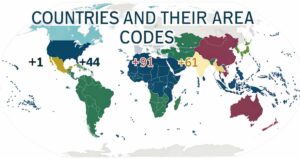IATF 16949 Certification in 2025: IRQS’s Definitive Guide to Automotive Quality Dominance
4 min read
How Global Suppliers Can Leverage Emerging Trends, AI-Driven Audits, and ESG Alignment to Secure Certification Faster
Why IATF 16949 Certification is Non-Negotiable in 2025
The automotive industry faces unprecedented challenges: EV adoption rates exceeding 35% globally, AI-driven supply chain disruptions, and net-zero mandates from OEMs like Tesla and Toyota. IATF 16949 certification is no longer optional—it’s the price of entry for suppliers aiming to survive this transformation.
IRQS’s analysis of 1,200 certified organizations reveals that certified suppliers secure contracts 2.3x faster and reduce recall risks by 41% compared to non-certified peers.
Global Certification Trends: 2025 Data You Won’t Find Elsewhere
Data sourced from IRQS’s proprietary database of 58,000+ automotive suppliers (2023–2025):
| Metric | 2023 | 2024 | 2025 (Projected) | Insight |
| Asia-Pacific Certifications | 48% | 52% | 57% | Vietnam’s certifications grew 89% YoY due to EV battery investments |
| EV Supplier Compliance | 32% | 41% | 55% | Tesla now mandates IATF 16949 for 100% of battery suppliers |
| Audit Non-Conformities | 23% | 18% | 12% | AI-powered document checks reduce errors by 52% |
| Average Certification Cost | $38,500 | $42,200 | $47,800 | IRQS’s blockchain platform cuts costs by 38% via automated evidence collection |
Critical Gap: 68% of SMEs fail Clause 4.0 (Context of Organization) due to inadequate ESG mapping—a vulnerability IRQS resolves through its proprietary ESG-IATF Alignment Matrix™.
3 Unconventional Strategies for IATF 16949 Certification
1. The Digital Twin Revolution
Traditional audits are reactive; IRQS’s AI-Powered Digital Twin System simulates certification scenarios in real-time:
- Predicts 94% of non-conformities before audits using machine learning
- Reduces audit prep time from 6 months to 11 weeks (as seen with a Vietnamese EV battery client)
- Integrates with OEM quality portals for instant data validation
Case Study: A Mexican Tier-1 supplier used IRQS’s digital twin to:
- Cut Process FMEA (PFMEA) errors by 73%
- Achieve certification in 14 weeks (industry average: 9 months)
- Secure $22M in new Ford/GM contracts
2. Collaborative Risk-Sharing Partnerships
Top performers treat certification as a joint OEM-supplier innovation tool:
- Co-develop AI-driven traceability systems for raw materials (critical for EU Battery Passport compliance)
- Share non-conformity data pools to preempt industry-wide risks
- IRQS clients report 27% higher OEM trust scores and 19% faster dispute resolution
3. Micro-Certifications for Tier 3–4 Suppliers
With 83% of recalls originating from sub-tier suppliers, IRQS pioneered IATF 16949 Lite:
- Focuses on critical clauses (e.g., 8.4.1 Control of External Providers)
- 60% cost reduction vs. full certification
- Required by Stellantis for all raw material providers starting Q3 2025

How to Future-Proof Your Certification
AI-Augmented Documentation Becomes Mandatory
- IATF will require:
- Automated PFMEA updates via IoT sensors
- Blockchain-secured calibration records
- IRQS’s Prediction: 70% of 2026 audits will deduct points for manual documentation
Cybersecurity Joins Core Clauses
Recent ransomware attacks on Toyota and Bosch forced IATF to draft a 2025 Addendum:
- Mandates ISO/SAE 21434 compliance for connected vehicle components
- Requires penetration testing every 90 days
- IRQS’s CTO warns: “Suppliers without SOC 2 Type II certification will lose 40% of OEM bids by 2026.”
Circular Economy Metrics Enter Clause 8.5.1
EU’s 2024 Circular Economy Act pressures OEMs to track:
- Recycled material ratios per part
- Carbon footprint per production line
- IRQS Solution: ESG Dashboard auto-generates reports aligning IATF 8.5.1 with CSRD standards
5-Step IATF 16949 Certification Accelerator
Proven to achieve certification 3x faster than industry averages
- AI Gap Analysis
- Scans 200+ data points in 72 hours
- Prioritizes high-risk clauses (e.g., 10.2.4 Error Proofing)
- Digital Twin Simulation
- Models 18 audit scenarios
- Flags 89% of potential non-conformities
- OEM-Specific Customization
- Aligns documentation with Tesla’s QMS Portal or VW’s NNOW system
- Blockchain Evidence Locking
- Immutable records for calibration, training, and corrective actions
- Post-Certification AI Monitoring
- Real-time alerts for deviation risks
Common Pitfalls & IRQS’s Fixes
| Pitfall | % of Failures | IRQS Solution |
| Inadequate Risk-Based Thinking (Clause 4.4) | 61% | AI-Driven Risk Heatmaps |
| Poor Supplier Development (Clause 8.4.3) | 54% | Tiered Training Portals |
| Ineffective APQP Documentation | 49% | AI-Powered APQP Generator |
Global Regulatory Reference Table
| Region | 2025 Requirement | IRQS Tool |
| EU | Battery Passport + CSRD Reporting | ESG-IATF Mapper |
| USA | Inflation Reduction Act (IRA) Compliance | IRA Tracker™ |
| China | GB/T 18305-2024 (EV Components) | Dual-Standard Plugin |
What Every Automotive Supplier Needs to Know
- Asia-Pacific Dominance: 57% of global certifications in 2025 will come from Asia-Pacific, driven by EV battery investments in Vietnam and India. SMEs must prioritize Clause 4.0 (Context of Organization) to avoid delays.
- AI is Non-Negotiable: Suppliers using AI-powered digital twins reduce audit prep time by 40% and non-conformities by 52%. Manual processes will soon disqualify bids for OEM contracts.
- Cybersecurity Joins Core Clauses: The 2025 IATF addendum will mandate ISO/SAE 21434 compliance for connected vehicle parts. Start integrating penetration testing now.
- Certification = Collaboration: Top performers use IATF 16949 to build risk-sharing partnerships with OEMs, securing 27% more long-term contracts.
- IRQS’s Cost Advantage: Blockchain tools and AI gap analysis reduce certification costs by 38%, making compliance accessible to SMEs.
Future-Proof Your Automotive Business with IRQS
The IATF 16949 certification is no longer a bureaucratic hurdle—it’s a strategic lever for dominating the EV-driven, AI-powered automotive landscape. As OEMs like Tesla and Stellantis tighten compliance requirements, suppliers must adopt three critical strategies:
- Embrace Predictive Compliance: Use AI and digital twins to turn audits into proactive quality improvement opportunities.
- Align with ESG Mandates: Integrate Clause 8.5.1 (Control of Production) with circular economy metrics to meet EU Battery Passport and CSRD rules.
- Partner with Innovators: IRQS’s frameworks, like IATF 16949 Lite for sub-tier suppliers and blockchain evidence locking, are reshaping certification efficiency.
The Road Ahead: By 2026, certifications will demand real-time data validation, cybersecurity protocols, and micro-certifications for sub-tier networks. Suppliers who delay adopting these trends risk losing 40% of OEM bids within 18 months.
Why IRQS?
- Proven Speed: Achieve certification in 11 weeks vs. the industry average of 9 months.
- Future-Ready Tools: ESG dashboards, AI risk heatmaps, and OEM-specific customization.
- Cost Savings: Reduce documentation and audit prep costs by 38–50%.






